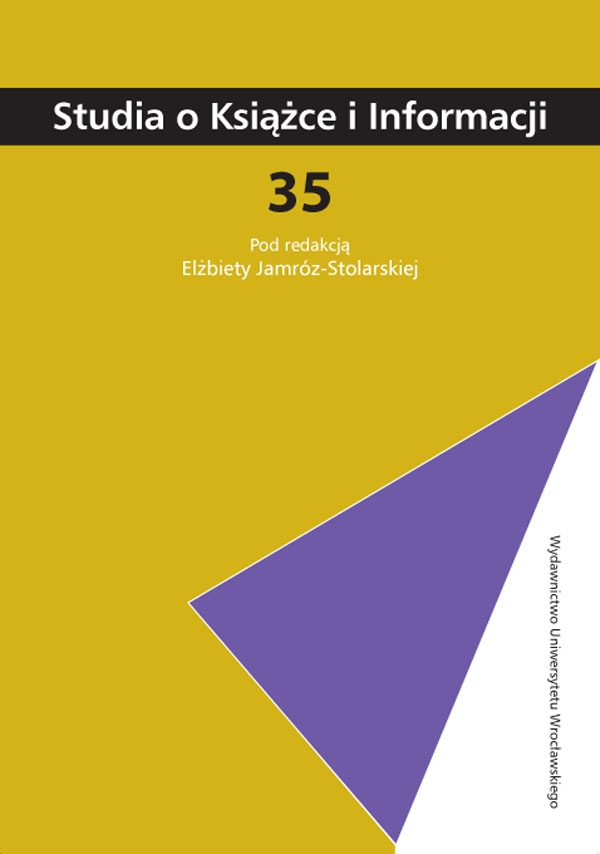Bazy bibliograficzne a POL-index. Plusy i minusy, szanse i zagrożenia na podstawie doświadczeń BazTech
DOI:
https://doi.org/10.19195/2300-7729.35.1Słowa kluczowe:
bibliographic databases, BazTech, POL-index, cytation analysis, scientific journalsAbstrakt
Bibliographic databases and POL-index — strengths, weaknesses, opportunities and threats — based on BazTech experience
The theme of the article is focused on creating aPolish citation database POL-index in the context of cooperation between the various data providers: the editors / publishers of journals and bibliographic databases. It presents the concept of the POL-index and the Polish Impact Coefficient as well as the related legal acts, POL-index management and its contents. It also explains the experiences of bibliographic databases creators associated with transmission of metadata of the articles from scientific journals to POL-the index. The article indicates the best practices of these activities of BazTech database, especially the various aspects of cooperation with the journal editors. The aim of the article is to analyze the strengths and weaknesses of cooperation between different partners in creating of POL-index, opportunities and threats for further development of the system itself, as well as bibliographic databases. The method of literature’s analysis, primary source and statistical data were used. Conclusions — The most important strengths of the cooperation in the POL-index are benefits for databases, including greater timeliness and completeness of data as well as an increase of importance of these services. The weaknesses were: inconsistencies in the law, lack of satisfactory information among publishers, diversity of data formats and frequent changes of POL-index operators. The key opportunity is the potential of the bibliographic databases, which may constitute the core of POL-index, and the threat — lower rate of completeness of the citations in the POL-index.

